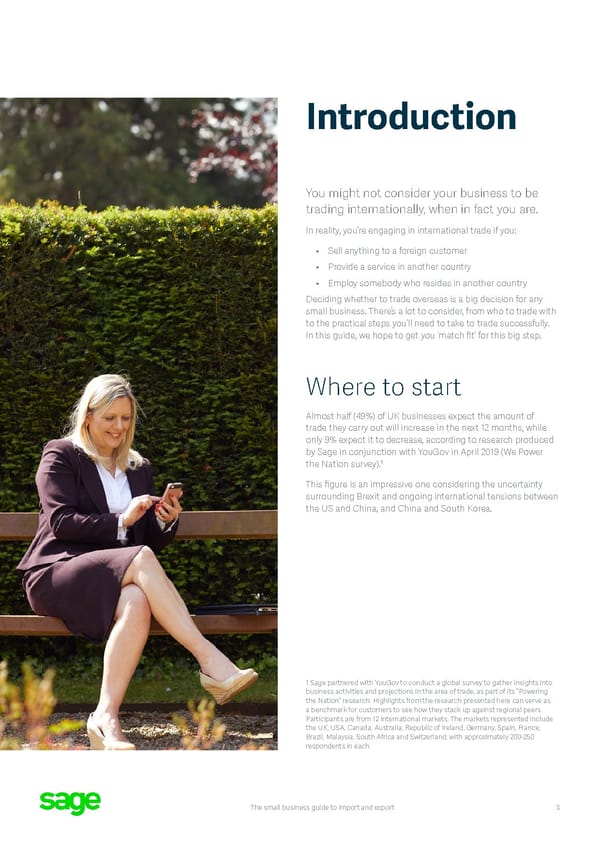Introduction You might not consider your business to be trading internationally, when in fact you are. In reality, you’re engaging in international trade if you: • Sell anything to a foreign customer • Provide a service in another country • Employ somebody who resides in another country Deciding whether to trade overseas is a big decision for any small business. There’s a lot to consider, from who to trade with to the practical steps you’ll need to take to trade successfully. In this guide, we hope to get you ‘match fit’ for this big step. Where to start Almost half (49%) of UK businesses expect the amount of trade they carry out will increase in the next 12 months, while only 9% expect it to decrease, according to research produced by Sage in conjunction with YouGov in April 2019 (We Power 1 the Nation survey). This figure is an impressive one considering the uncertainty surrounding Brexit and ongoing international tensions between the US and China, and China and South Korea. 1 Sage partnered with YouGov to conduct a global survey to gather insights into business activities and projections in the area of trade, as part of its “Powering the Nation” research. Highlights from the research presented here can serve as a benchmark for customers to see how they stack up against regional peers. Participants are from 12 international markets. The markets represented include the UK, USA, Canada, Australia, Republic of Ireland, Germany, Spain, France, Brazil, Malaysia, South Africa and Switzerland; with approximately 200-250 respondents in each. The small business guide to import and export 3
 Sage Small Business Guide: Import and Export Flipbook Page 2 Page 4
Sage Small Business Guide: Import and Export Flipbook Page 2 Page 4